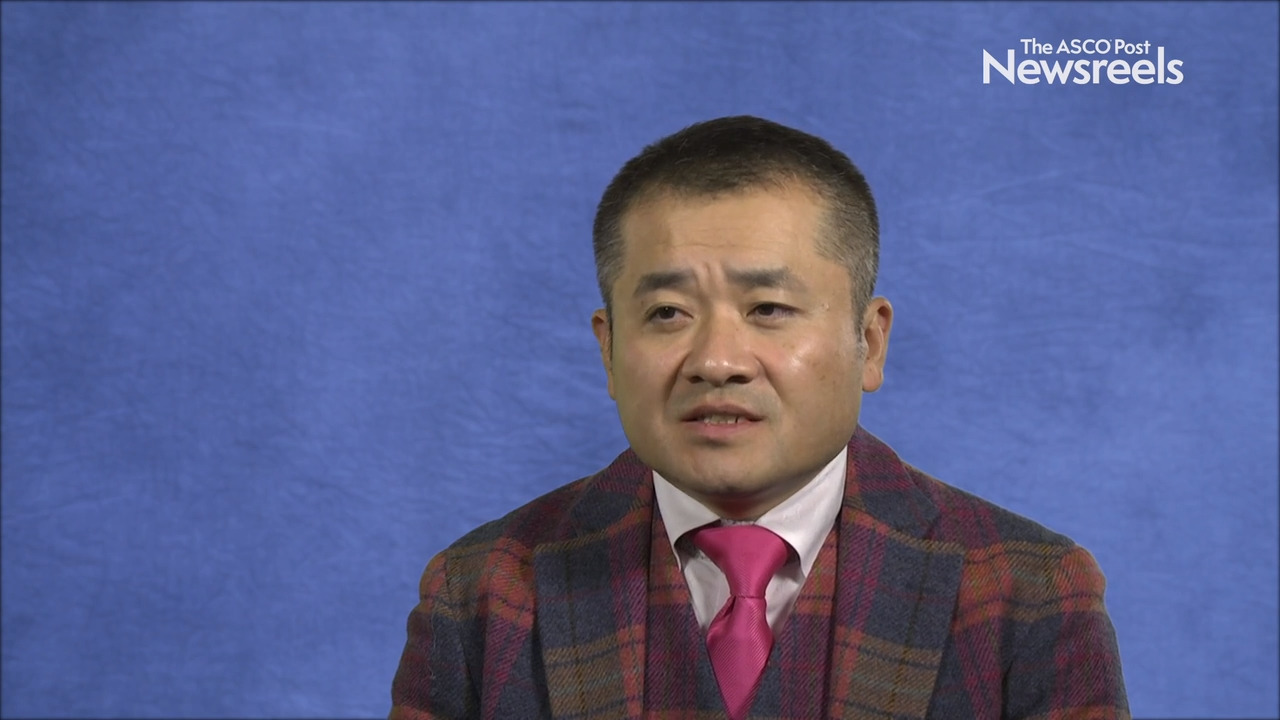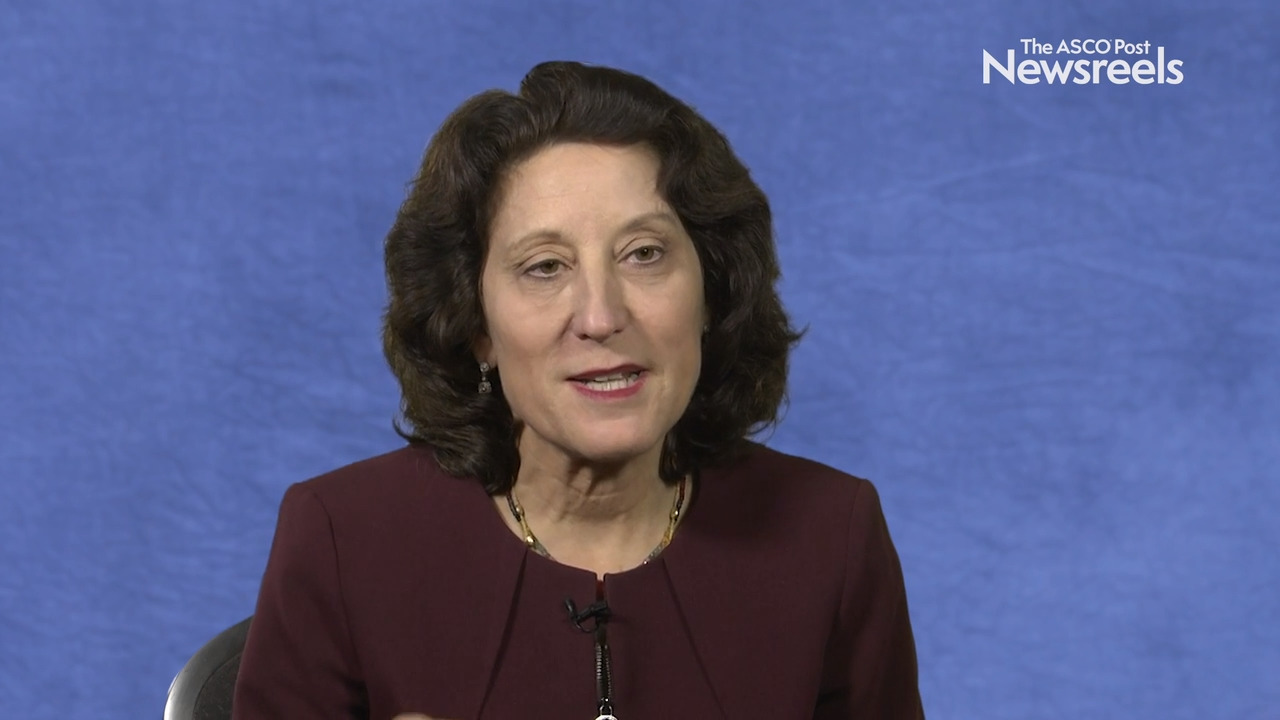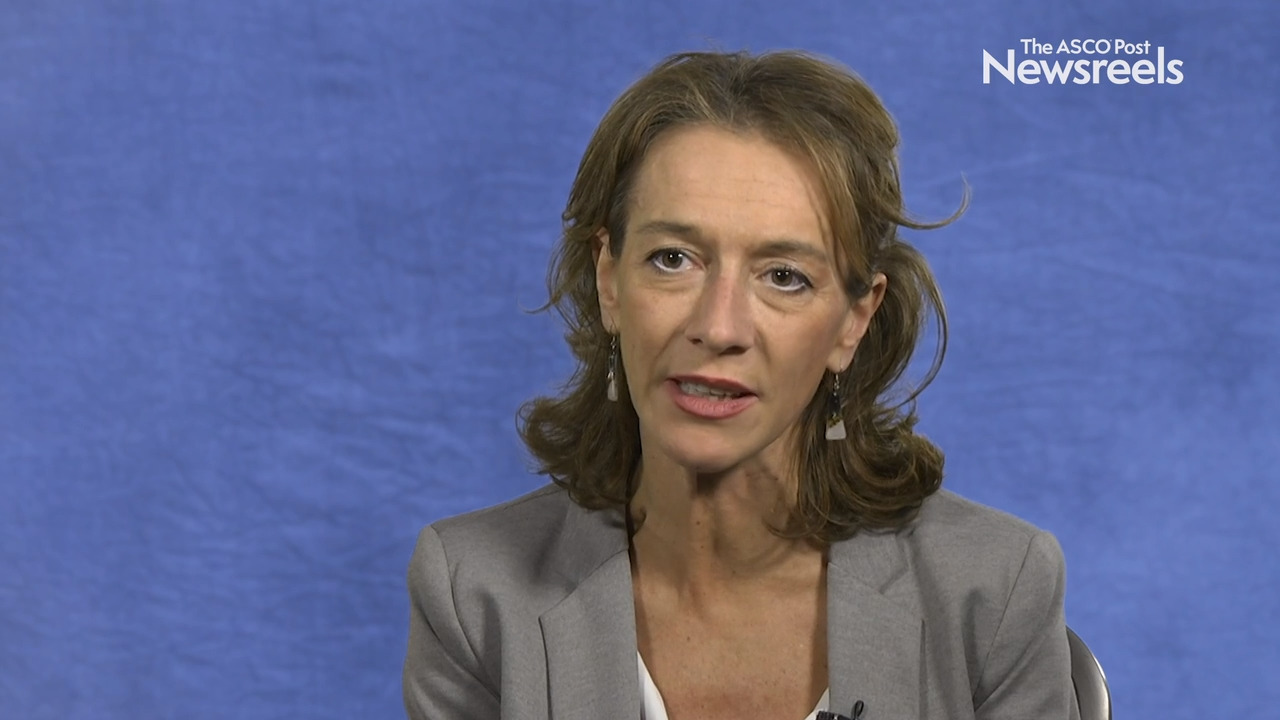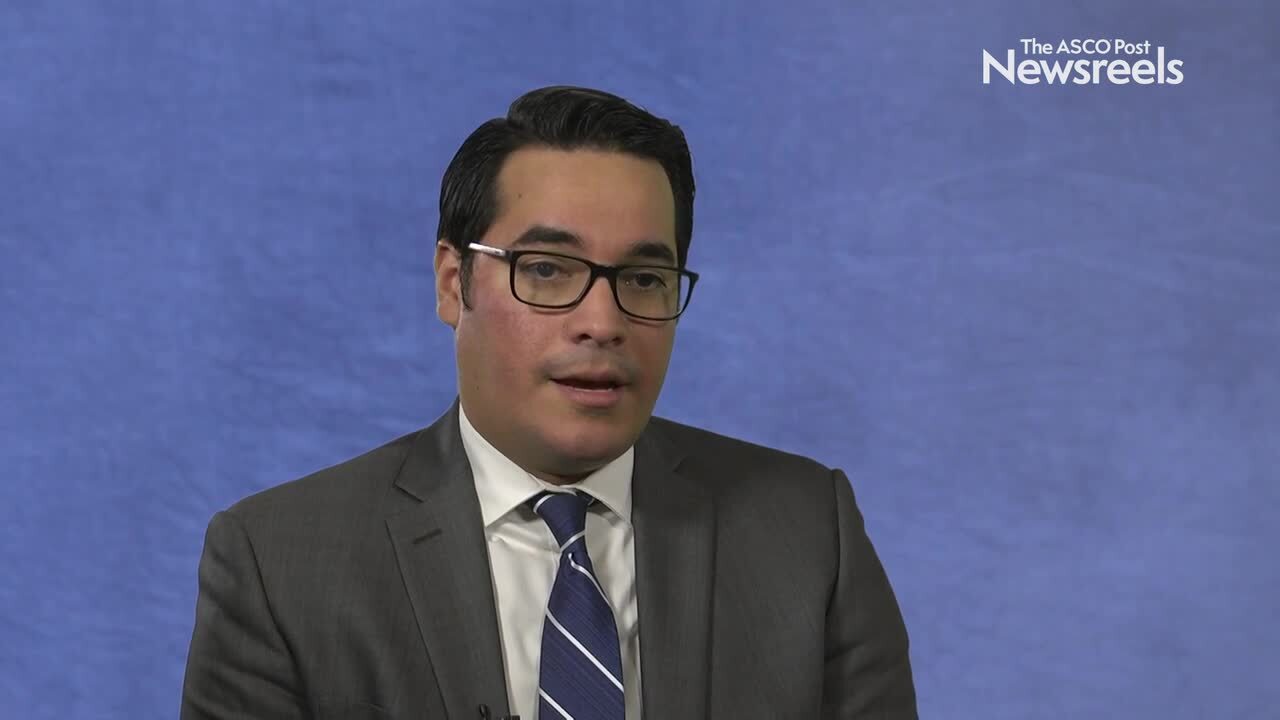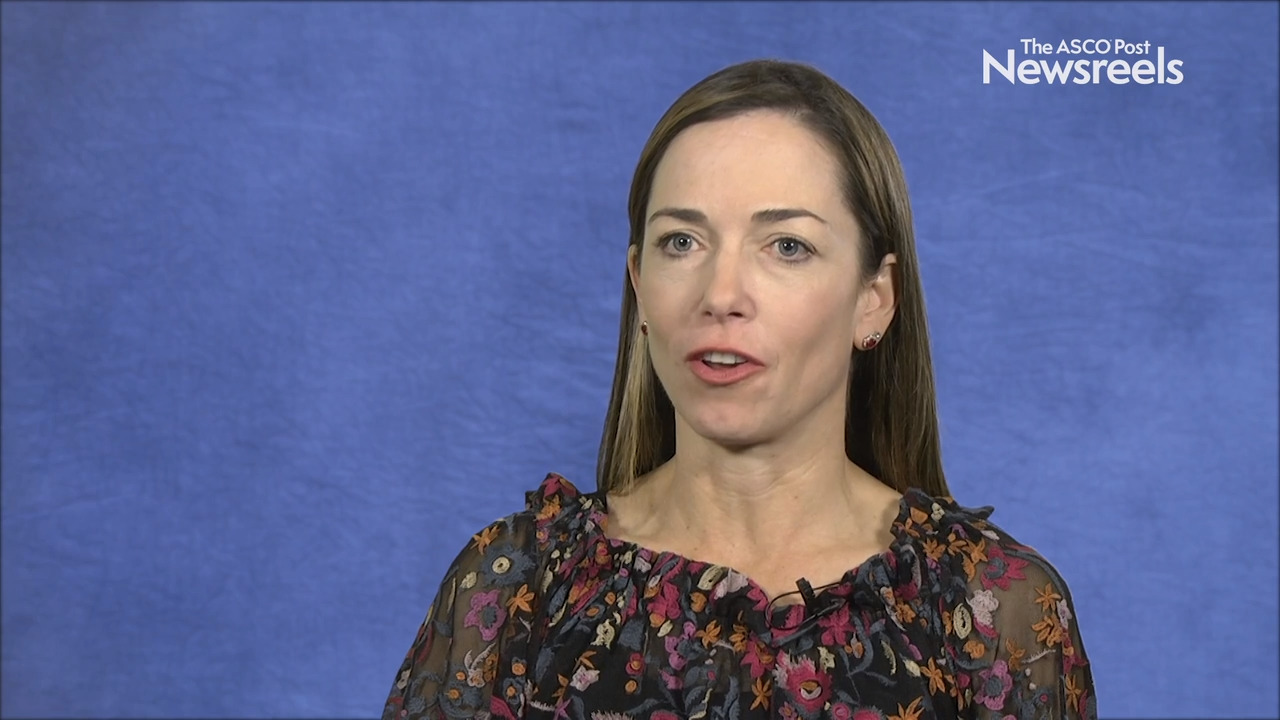Shanu Modi, MD, on Low HER2-Expressing Breast Cancer: Updated Trial Findings
2018 San Antonio Breast Cancer Symposium
Shanu Modi, MD, of Memorial Sloan Kettering Cancer Center, discusses study findings from a large phase I study on trastuzumab deruxtecan in patients with low HER2-expressing breast cancer (Abstract P6-17-02).
Shoichiro Ohtani, MD, PhD, of Hiroshima City Hiroshima Citizens Hospital, discusses study findings on extending anastrozole to 10 years, which led to higher rates of disease-free survival and distant disease–free survival (Abstract GS3-04).
Hope S. Rugo, MD, of the University of California, San Francisco, discusses how treatment with a lower dose of palbociclib (100 mg vs 125 mg) in combination with fulvestrant or tamoxifen is associated with a lower rate of high-grade neutropenia (Abstract PD2-12).
Eva M. Ciruelos, MD, PhD, of the University Hospital 12 de Octubre and the SOLTI Group, discusses study findings on palbociclib and trastuzumab in postmenopausal patients with HER2-positive metastatic breast cancer (Abstract PD3-03).
Roberto A. Leon-Ferre, MD, of the Mayo Clinic, discusses study findings on the effectiveness of oxybutynin in decreasing the frequency and severity of hot flashes (Abstract GS6-01).
Sara A. Hurvitz, MD, of the University of California, Los Angeles, discusses the natural history and novel combinations for HER2-positive disease as well as predictive and prognostic markers for this type of breast cancer.
